In the competitive realm of Google advertising effective keyword targeting is crucial for driving search engine traffic, generating leads, enhancing lead quality, and ultimately scaling a service-based business.
When you select a keyword, you also utilise match type targeting to refine the extent to which a keyword aligns with a search term in Google. With advancements in artificial intelligence (AI) and machine learning, keyword targeting has expanded significantly. The interpretation of intent now transcends mere lexical matches between search terms and keywords—a departure from the era of manual campaign management before the advent of AI.
Although often overlooked due to potential pitfalls, broad match keywords can substantially boost your advertising efforts by increasing the number of high-quality leads when employed strategically. However, it is essential to comprehend how AI can either benefit or hinder you, particularly if it inadvertently trains the system to attract low-quality leads.
In this blog post, we will delve into the advantages of broad match keywords, such as the capability to outperform competitors by accessing a broader audience whilst still optimising for high-quality customers. We will also discuss the role of AI, how offline conversion tracking can enhance lead quality, and best practices for leveraging these strategies to generate high-quality leads for service companies.
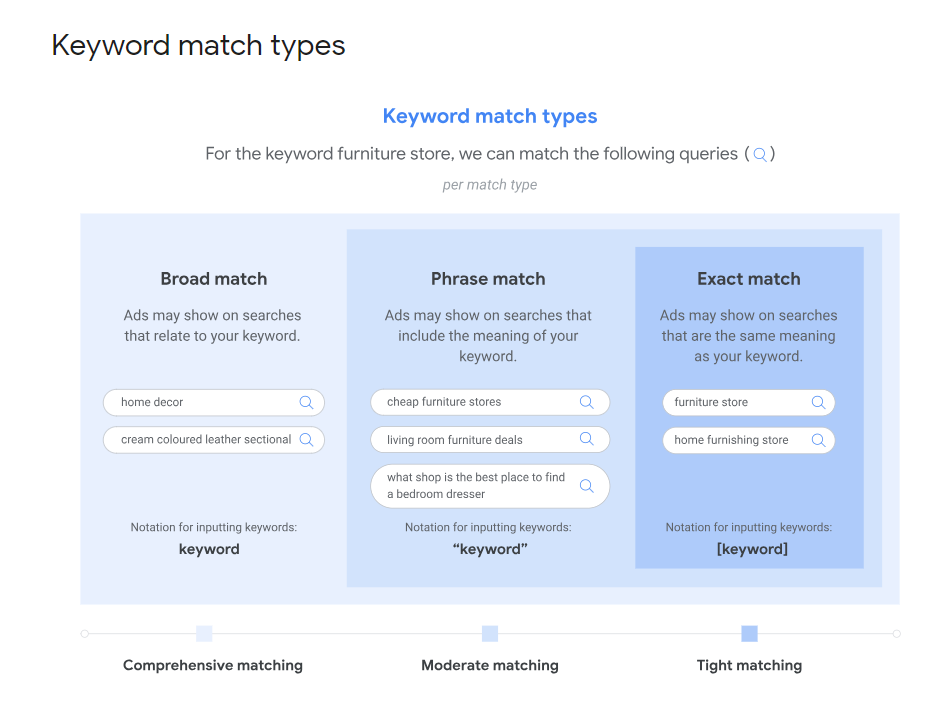
Understanding Broad Match Keywords
Broad match keywords are one of the keyword match types available in Google Ads. Traditionally, they enable your ads to appear for searches that include misspellings, synonyms, related searches, and other relevant variations. For example, if your broad match keyword is “plumbing services,” your ad might appear for searches such as “local plumber,” “emergency plumbing,” or “plumber near me.” These are known as transactional search terms with commercial intent—indicating someone is looking for a supplier.
However, nowadays, broad match is much wider than before and could trigger your ads for searches that you might not have considered, or that may not display commercial intent. For instance, your ad could be shown for a more informational term or top of the funnel keyword like “plumbing,” or even a part model of a device needing repair. The use of manual or smart bidding, also known as machine learning, significantly impacts the breadth of the targeting.
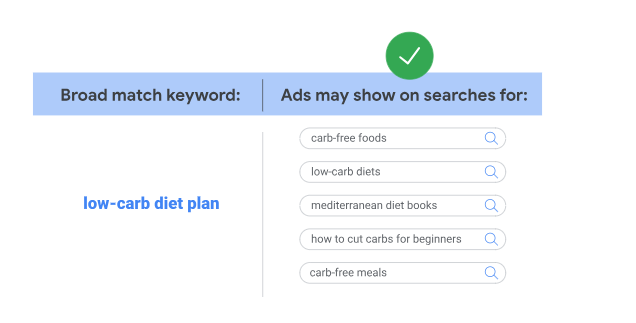
Keyword Match Type in the AI-Era
Exact Match: No Longer ‘Exact’: Once the gold standard for precision, exact match is no longer strictly tied to an identical match of search terms. AI now interprets the intent behind a search, allowing ads to be triggered by close variations, synonyms, and related phrases, even if they don’t match the keyword exactly. This shift means that while exact match still offers a degree of control, it is now broader and more flexible, aligning with Google’s AI-driven understanding of user intent.
Phrase Match: Expanded Reach: Phrase match, which used to ensure that search terms contained the exact keyword phrase in the correct order, has also been widened. AI now interprets the context in which the phrases appear, enabling ads to show for a broader array of related searches. This change reflects Google’s move towards understanding the broader intent behind search queries, rather than relying on rigid keyword structures.
Broad Match: The Default: Broad match has undergone the most significant transformation. Traditionally, it was used to cast a wide net, matching ads to a wide range of searches that included synonyms, related terms, and variations. Now, with AI enhancements, broad match has become the default recommendation by Google. The AI processes vast amounts of data, including user behaviour, search history, and contextual signals, to match ads with searches that it deems relevant, even if the search terms do not directly align with the keyword. This AI-driven broad match offers expansive reach, potentially uncovering valuable opportunities that might have been missed with more restrictive match types. Want to learn more, see our blog post: Keyword Match Type for Google Ads?
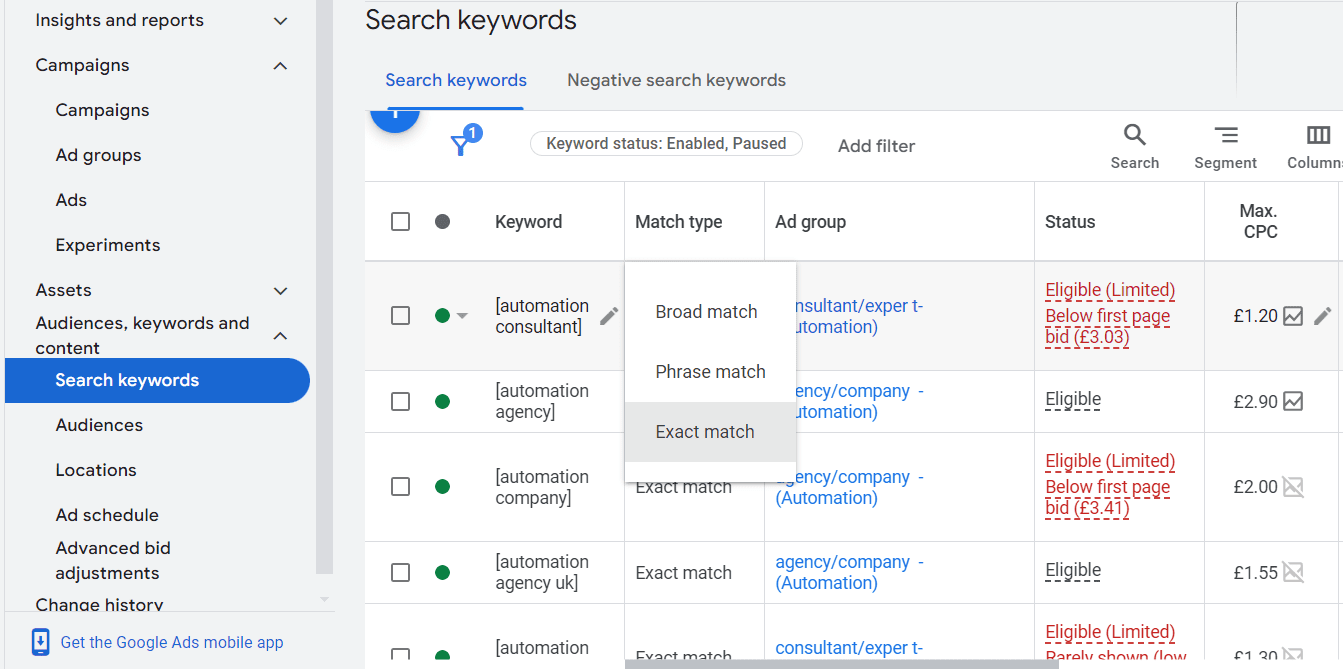
Benefits of Broad Match Keywords
Increased Reach
Broad match keywords significantly enhance your ad reach by enabling your advertisements to appear for a diverse array of search queries, thereby moving your campaigns up the marketing funnel. Unlike exact or phrase match keywords, which limit your ads to precise search terms, broad match keywords cast a wider net. This approach allows your ads to be displayed to potential customers who may be using different phrases or keywords than those you originally targeted. By leveraging broad match, you can connect with a larger audience who might be interested in your offerings but aren’t yet familiar with your specific brand or product terms. This strategy is particularly effective for building brand awareness and introducing your products or services to a new audience.
Enhanced Brand Discovery
Broad match keywords facilitate enhanced brand discovery by allowing your ads to appear in unexpected and diverse search scenarios. This exposure can introduce your brand to potential customers who might not have specifically searched for your products or services but are likely to be interested based on related searches. This serendipitous discovery can lead to increased brand recall and consideration, particularly if your ad copy and messaging resonate with these new audiences. Over time, this can strengthen your brand presence in the market and create new pathways for customer engagement and loyalty.
Uncover New Keywords
Utilising broad match keywords can help you discover new keyword opportunities that might not have been initially apparent. As your ads are triggered by a wider range of search queries, you can gather insights into the language and terms potential customers use to search for products or services like yours. This data can uncover emerging trends and consumer preferences, allowing you to expand and refine your keyword strategy. By analysing the performance of broad match keywords, you can identify high-performing queries that can be added to your targeted keyword list, enhancing the precision and effectiveness of your campaigns over time.
Cost-Effectiveness
One of the notable advantages of broad match keywords is their cost-effectiveness compared to more specific keyword types such as exact match and phrase match. Broad match keywords often have lower cost-per-click (CPC) rates due to their wider targeting range. This can be particularly advantageous for advertisers with limited budgets, as it allows for more clicks and impressions within the same budget allocation. Additionally, the broader targeting scope can lead to increased ad visibility and exposure, providing more value for your advertising spend. By strategically managing your bids and budgets, broad match keywords can be an efficient way to maximise your return on investment.
Increased Conversions
Broad match keywords allow you to cast a wider net, increasing the likelihood of capturing high-quality leads who might not use your exact target keywords but are still interested in your services. By reaching a broader audience, you can attract potential customers at different stages of the buying journey, including those who are still in the research phase. This expanded reach can lead to increased conversions, as your ads may attract users who are more inclined to engage with your brand. Broad match keywords can help capture the attention of users who may not have been exposed to your brand otherwise, ultimately contributing to higher conversion rates and sales growth.
Improved Learning for AI Algorithms
The utilisation of broad match keywords provides valuable data that aids in refining the algorithms of AI-driven advertising. As your ads are displayed for a variety of search queries, the data collected helps improve ad relevance and targeting over time. AI algorithms can analyse user behaviour and interactions with your ads, enabling them to optimise ad delivery and targeting strategies. This continuous learning process allows your campaigns to become more effective and efficient, as the AI systems adapt to changing market dynamics and consumer preferences. By using broad match keywords, you contribute to the ongoing enhancement of AI algorithms, leading to more successful ad campaigns in the long term.
Flexibility and Adaptability
Broad match keywords offer a high degree of flexibility and adaptability in dynamic market environments. As consumer behaviours and search trends evolve, broad match keywords enable your campaigns to adjust in real time without requiring constant manual updates to keyword lists. This flexibility is particularly valuable in fast-paced industries where trends can shift rapidly. By maintaining a broad match strategy, your campaigns can automatically align with changing consumer interests and demands, ensuring that your ads remain relevant and effective across a wide range of search scenarios.
Comprehensive Audience Insights
Broad match keywords provide comprehensive insights into your audience’s search behaviour and preferences. By analysing the search queries that trigger your ads, you can gain a deeper understanding of what potential customers are looking for and how they are interacting with your brand. This information can inform other aspects of your marketing strategy, such as content development, product offerings, and customer engagement tactics. By leveraging these insights, you can create more targeted and personalised marketing campaigns that resonate with your audience and drive higher engagement and conversions.
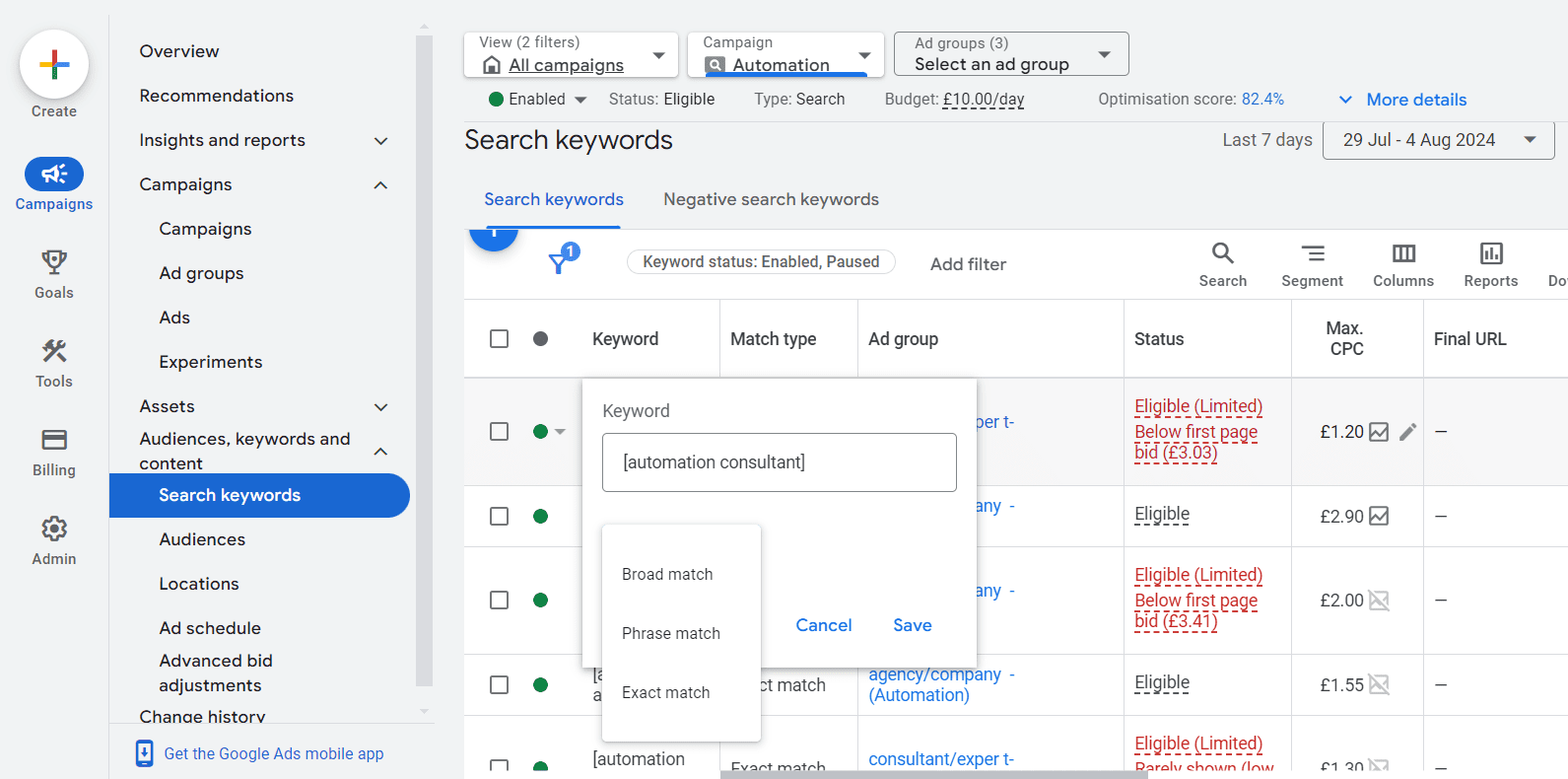
Preventing AI-Driven Low-Quality Leads
Artificial intelligence (AI) has revolutionised marketing by optimising ad targeting and personalising customer interactions. However, without proper management, it can inadvertently generate low-quality leads- and work against you- not for you.
For example, If a campaign initially attracts these leads due to imprecise targeting or poorly defined conversion goals, AI may continue to optimise towards similar profiles, leading to wasted budget and reduced return on investment (ROI).
To mitigate this risk, it’s crucial to address potential pitfalls by implementing best practices, such as using both online and offline conversion tracking. These strategies ensure that AI is optimising for high-quality leads while scaling your business effectively.
Using Broad Match: E-commerce VS Lead Gen
For e-commerce, broad match may often work better than for lead generation (lead gen), at least when only using online conversion tracking, rather than also offline conversion tracking for several key reasons:
Higher Intent in E-Commerce
E-commerce users are often closer to the purchase decision when they search, meaning they have higher transactional intent. Broad match can capture more relevant, purchase-ready traffic because it allows ads to show for searches that may not be precise but still signal buying intent (e.g., related product categories or synonyms).
For lead gen, the journey is typically longer and requires more precise targeting. Broad match may capture too many users who are not ready to convert or who have general information-seeking intent, leading to lower-quality leads.
Conversion Tracking and Reporting on ROI & ROAS
In e-commerce, tracking conversions is usually straightforward—it’s a direct sale. Google’s machine learning and algorithms can optimise broad match for conversions more effectively.
Lead gen often involves multiple touchpoints and a longer sales cycle, making conversion tracking less direct. Optimising broad match for lead gen is more challenging, as it may bring in a wide array of unrelated searches, reducing overall campaign effectiveness.
Volume Based Approach
E-commerce businesses usually focus on high-volume, lower-cost transactions. Broad match fits this strategy because it drives more traffic, which can be converted into sales with lower friction.
Lead gen, on the other hand, is often low-volume but high-value, requiring more precise targeting and qualification. Broad match can lead to too many unqualified clicks, which can drain budget without providing valuable conversions.
In summary, broad match works well for e-commerce because of its ability to capture diverse, high-intent searches and maximise product discovery, while in lead gen, it may lead to lower-quality leads due to the broader, less specific nature of the targeting. For lead generation companies to get the same success from broad match, the most important thing you do is install broad match
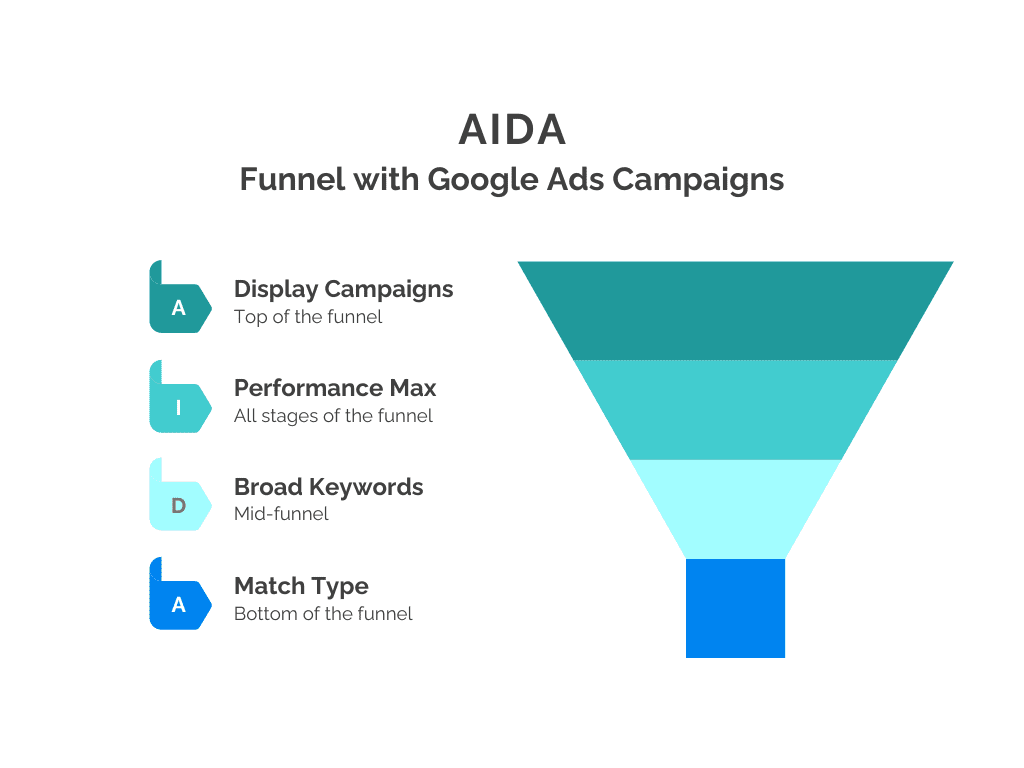
Broad Match & AI & Online Conversion Tracking
Google’s AI uses machine learning in combination with online conversion tracking to optimise for the highest quantity of leads at the lowest cost. By analysing historical conversion data, AI algorithms reverse-engineer the behaviour of users most likely to convert, identifying patterns in future auctions. This process allows AI to focus on optimising for volume and cost efficiency, particularly through metrics like Target CPA (Cost Per Acquisition), which drives high volumes of leads through methods like form submissions or phone calls.
AI’s impact on broad-match keywords is particularly notable. It enhances the understanding of search intent and user behaviour, enabling the algorithm to match ads with broader but still highly relevant search terms. This capability ensures that, despite the wider targeting scope of broad match, ads are still aligned with the user’s search intent.
The Limitations of Online Conversion Tracking
Online conversion tracking plays a pivotal role in helping advertisers understand which keywords, search terms, ads and campaigns lead to conversions, allowing for strategic adjustments in campaigns. It provides critical insights that guide optimisation decisions, such as refining bidding strategies and determining where to focus ad spend for maximum efficiency. This data-driven approach ensures that AI can learn from every user interaction, making future campaigns more precise and effective.
However, while online conversion tracking focuses on immediate actions like form submissions and calls, it doesn’t capture the full scope of the customer journey, especially for businesses with longer sales cycles. So the AI can’t optimise for improved lead quality unless you also set up offline conversion tracking to allow Google to do lead scoring, and therefore get you the best mix of lead quantity and quality.
Improve Lead Quality using Offline Conversion Tracking with Broad Match
Now that you have Smart Bidding (AI/machine learning) working with online conversion tracking, you may notice an increase in leads; however, the quality of these leads may decline. While you want more leads, you also want to maintain their quality, and that is where offline conversion tracking becomes valuable.
Offline conversion tracking is a powerful feature that allows advertisers to import offline sales process interactions, such as qualified leads and converted leads (customers), along with revenue data, back into Google Ads. This feature enables you to link your online ad campaigns with actual sales and customer interactions that occur offline, such as phone calls, in-store visits, or sales cycle updates. Here’s how it can improve lead quality:
Refined Audience Targeting: Offline conversion data provides insights into which audience segments convert into high-quality leads. This information helps you refine targeting strategies to reach potential customers who are more likely to convert.
Enhanced AI Optimisation: Feeding offline conversion data into Google Ads enables AI to learn from complete conversion information, leading to better optimisation for high-quality leads and improved overall campaign performance.
Better ROI Measurement: With offline conversion tracking, you can measure the full impact of your advertising spend, giving you a clearer picture of ROI and helping you make data-driven decisions to enhance lead quality.
Accurate Attribution: By tracking offline conversions, you can more accurately attribute which keywords, ads, and campaigns are driving the most valuable leads with the highest likelihood of becoming customers, allowing you to focus your budget on high-performing strategies. Want to learn more, see our guide: Offline Conversion Tracking for Google Ads
Best Practices for Using Broad Match
To maximise the effectiveness of broad match keywords in your Google Ads campaigns, consider the following best practices:
Define Conversion Goals Clearly:
It is crucial to utilise both online and offline conversion tracking to ensure the success of your marketing campaigns. Without at least online conversion tracking, your campaign is likely to fail. Moreover, not using offline conversion tracking significantly reduces your chances of success.
If you are relying solely on online conversion tracking, make sure your conversion goals align with your business objectives. These goals could include completing a purchase, submitting a lead form, or performing another action that signifies a high-quality lead.
Leverage Smart Bidding:
Use Google’s AI machine learning strategies, such as Target CPA or Maximise Conversions, to optimise bids automatically based on real-time data. Smart Bidding helps ensure that your budget is used efficiently, focusing on users who are more likely to convert into leads, as well as into customers when also using offline conversion tracking.
Overlay Customer Match lists:
Integrate your customer and prospect lists into your existing campaigns using observation mode to report on how audiences interact with your ads. By observing the behaviour of these audiences, you can make informed adjustments to your campaigns, enhancing targeting precision and improving conversion rates. Additionally, these audiences enable Google’s AI to consider the characteristics of your past customers in real-time auctions.
Regularly Review Lead Quality:
Analyse the quality of leads generated by your campaigns. Look for patterns or trends in low-quality leads and adjust your strategy accordingly.
Refine Audience Targeting:
Compare the performance of different audience targeting to focus on those that are more likely to result in high-quality leads. Consider layering targeting options to narrow down your audience, or testing.
Combine broad-match keywords with audience targeting to refine your reach. Target specific demographics, interests, or behaviours that align with your ideal customer profile to enhance the relevance of your ads.
Use Negative Keywords:
Incorporate negative keywords to filter out irrelevant traffic and prevent your ads from showing for queries that have a low online conversion rate or/and or offline conversion rate.
Start with a Small Budget:
Begin your campaign with a modest budget to test the waters. Monitor performance metrics such as click-through rates (CTR) and conversion rates to assess the effectiveness of your broad match keywords.
Continuous Optimisation:
Regularly review campaign performance and make data-driven adjustments. Analyse search term reports, identify high-performing queries, and add them as exact match keywords to gain more control over your ads.
A/B Testing:
Conduct A/B tests using campaign experiments to evaluate different keyword match types and determine which resonates best with your audience.
You can also run a test campaign using broad match keywords while excluding the best-performing keywords from the control campaign. This approach allows you to focus specifically on long-tail keywords or target search traffic higher up in the funnel with its own budget, and avoid overlap with the alpha control campaign.
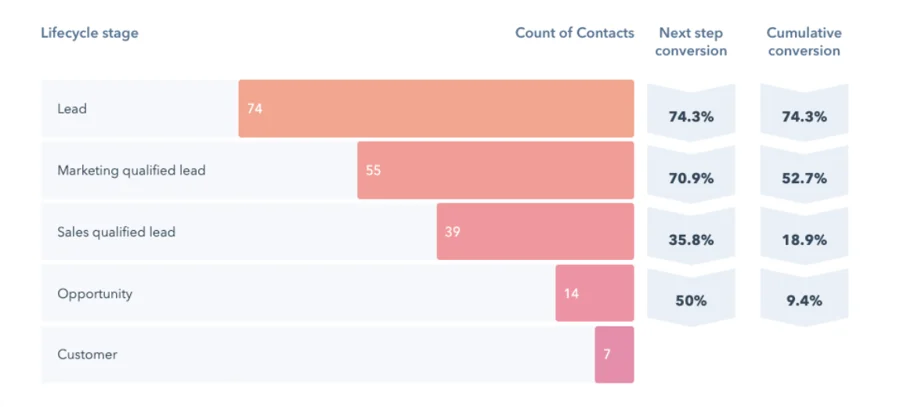
Key Takeaways
Avoid Broad Match Without Proper Tracking and Measurement:
Do not use broad-match keywords unless you have a well-defined strategy for conversion tracking, measurement, and reporting. Without proper tracking, broad-match keywords can lead to increased costs and less precise targeting, as they trigger a wide range of search queries. Ensure you have the necessary systems in place to track and measure conversions effectively before implementing broad-match keywords.
Implement Both Online and Offline Conversion Tracking:
To maximise the benefits of Google’s AI, it is crucial to run both online and offline conversion tracking. While online conversion tracking is essential, offline conversion tracking is often even more important for training the AI to generate quality leads.
To achieve this, link your CRM or marketing automation tool with your Google Ads campaigns to capture offline interactions, such as changes in lead stages, which signify lead quality. By integrating these systems, you can gain a comprehensive view of your leads’ journey and accurately measure the effectiveness of your advertising and marketing efforts.
Conclusion
Broad match keywords, when used following best practices, can be a powerful tool for lead generation in service companies. They offer a unique opportunity to reach a wide audience and discover new keyword opportunities. However, understanding how AI impacts your campaigns and leveraging both online and offline conversion tracking is crucial to increase leads while avoiding optimising for low-quality leads.
By implementing the strategies outlined in this post, you can leverage broad match keywords effectively while minimising potential risks. As with any digital marketing strategy, continuous monitoring and optimisation are key to maximising the return on investment from your Google Ads campaigns.
By embracing the potential of broad match keywords and employing a strategic approach, service companies can enhance their lead generation efforts and drive meaningful business growth in today’s competitive digital landscape.